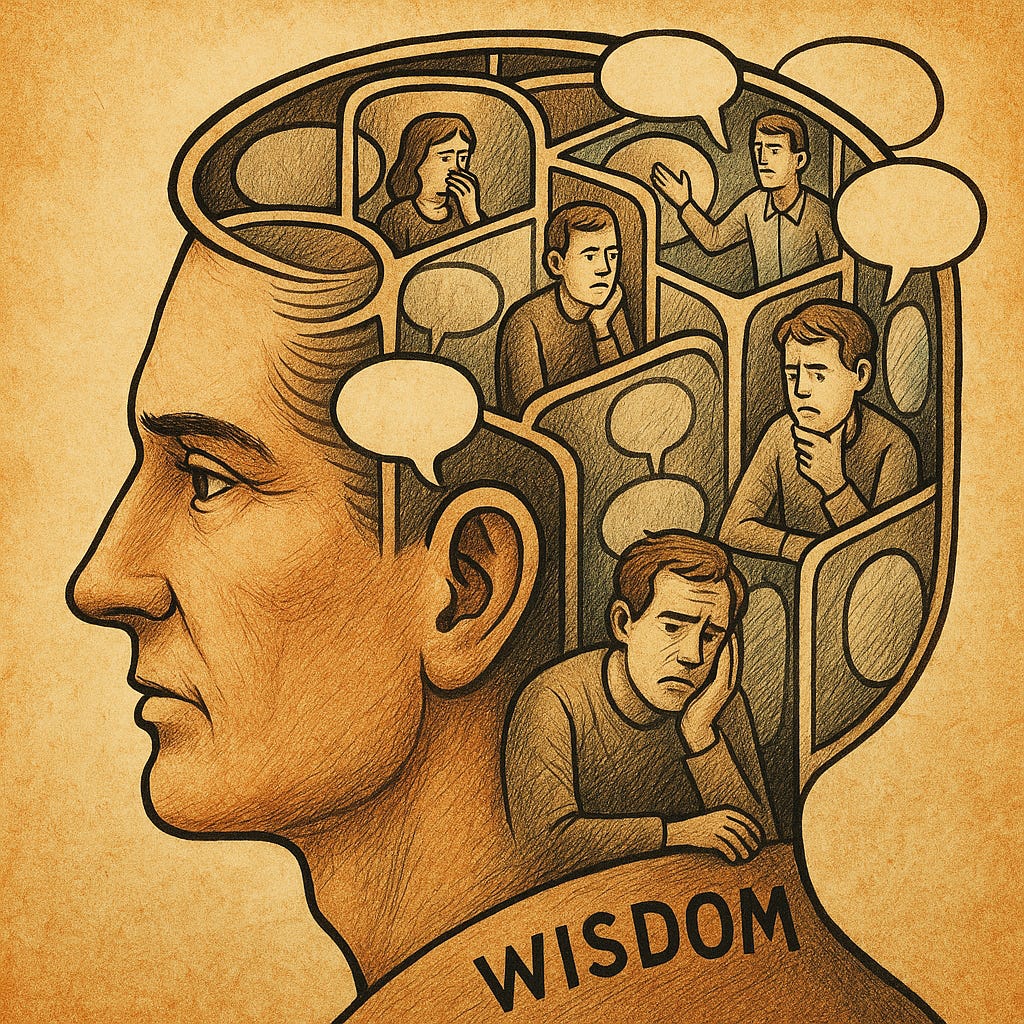House of Mirrors, Part III
The Intelligent Flattening
This is the third of a five part series on the House of Mirrors.
Each part was accompanied by a Youtube video that I recommend watching if you want to understand the larger picture I’m attempting to illustrate.
The added an epilogue and addendum bring this series right up to current events. Thank you in advance for your time and your consideration.
Click here for the introduction, part one, part two, part three, part four, part five. Epilogue. Addendum.
In this next chamber, we encounter what may be the most polished mirror of all: the conversation between David Perell and Steven Pinker.
This is the intellectual’s mirror — clean, sharp, respectable. Pinker, a Harvard psychologist and prominent defender of Enlightenment humanism, embodies the faith of the modern technocrat: reason, data, progress. His is a world governed by probabilities and neural correlates, where beauty is statistically derived and meaning is — at best — emergent.
It is tempting, in this room, to be dazzled by the clarity of the reflections. Pinker is no fool. He is precise, articulate, and committed to a rational world view. But here, another distortion creeps in — not from lack of intelligence, but from its overconfidence. This is the room of the “intelligent flattening.”
Take, for instance, his claim that averaging many faces from a yearbook produces a composite face that is, statistically, more beautiful. This is offered as a kind of metaphor for consensus: if enough data is pooled, truth or beauty will emerge — not from a transcendent source, but from aggregation itself.
And yet, something about this metaphor feels hollow. As if we’ve lost the vertical altogether — not because it was denied, but because it was never needed. In this view, meaning becomes a kind of statistical side effect. What’s missing is depth.
AI, too, is born from this flattening impulse. It learns by compression — billions of fragments, averaged out into coherence. But who decides what is beautiful? What is true? What is worth remembering?
The answer, in Pinker’s world, is: we do. Or rather, our behavior does. The average click, the average word, the average face.
But this is where the mirror turns. For in seeking to measure everything, we begin to reflect only ourselves — recursively, endlessly. We confuse familiarity with beauty, repetition with insight, and consensus with wisdom. The human soul becomes an algorithmic node, valuable only insofar as it fits the curve.
Yet even in this room, the Logos casts a faint shadow. Pinker himself cannot fully explain where reason comes from — or why it should compel allegiance. He appeals to evolutionary advantage, to cognitive clarity, to intellectual satisfaction. But he never quite names the source. The fire is admired, but the spark is unknown.
This is why the house of mirrors is so dangerous. It rewards IQ without acknowledging Wisdom. It favors pattern over purpose. And it trains even the most brilliant minds to look outward, endlessly — without ever looking up.
The danger here isn’t error. It’s brilliance without humility. Light, but no flame.
This is the room where many today reside. Technocrats, scientists, engineers. They are not villains. They are image-bearers. But their mirror reflects a world without sky — a dome of perfect logic, sealed shut against grace.
Only Logos can break that dome. And when it does, the brightest minds may finally see not just how to think — but why.

